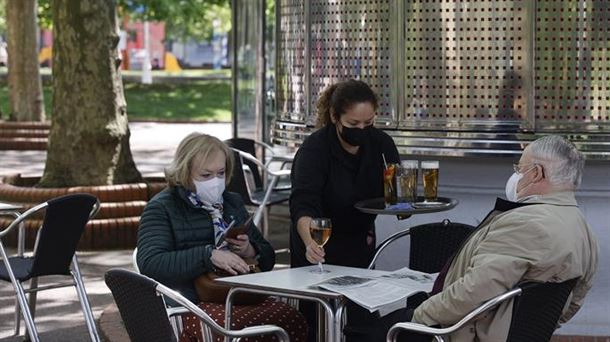In fact, new entry rules for Serbian citizens should have applied to Kosovo from Monday. In the north of the small Balkan state, largely inhabited by Serbs, militant Serbs stormed the ordinance. The situation escalated on Sunday. Barricades were erected and shots were fired at police officers. To ease the situation a bit, the new arrangement was postponed by a month. The incident proves once again that the conflict between Serbia and Kosovo, which has been smoldering for years, can escalate dangerously at the slightest event.
The root of the resentment in the Serbian-dominated north of Kosovo was that the Kosovar government no longer recognized Serbian identity documents when crossing the border and instead wanted to issue travelers with a preliminary document. The number plates issued by the Serbian authorities must also be exchanged for Kosovar ones. Instead of the abbreviation KM – Kosovska Mitrovica – there should be only RKS code – Republic of Kosovo – in the future.
According to Kosovo Prime Minister Albin Kurti, the new border regulation should really only be a mutual measure. As a result of a free movement agreement reached with Belgrade in 2011, citizens of Kosovo – although not of Serbian descent – are dependent on temporary identity documents issued by the Serbian authorities when entering Serbia. The background to the whole conflict is that Belgrade still refuses to recognize the independence of Kosovo, its former province, announced in 2008, and thus also its personal documents.
On Monday it became clear again that the renewed escalation in northern Kosovo was probably not just about the latest measures taken by the government in Pristina. In the four Serb-inhabited communities – Mitrovica, Leposavic, Zvecan and Zubin Potok – posters appeared with the inscription “Welcome to the community of Serb communities”, which Pristina can probably only understand as another provocation by Belgrade.
“De-Nazi” Kosovo?
In fact, Belgrade has been in control of the situation in the four municipalities in northern Kosovo for years, thanks in part to the “Serbian List”, which is loyal to Belgrade and also involved in the government of Kosovar Prime Minister Kurti. In the course of Serbian President Aleksandar Vucic’s nationalist speeches, the word “denazification” was even mentioned – a term also used by the Russian leadership to justify the attack on Ukraine. In a televised speech on Sunday evening, Vucic emphasized that he wanted peace, but if Serbs are “persecuted, mistreated, murdered, Serbia will win”.
Serbian human rights expert Milan Antonijevic sees the tensions between Belgrade and Pristina clearly differently. What was seen on Sunday as statements that could lead to further escalation were not addressed to the Serb people but had a calming effect on the Serbs in Kosovo and were intended to signal to them that they would remain safe, he said on TV. transmitter N1 . Probably an unusual interpretation.
Pristina blocks community of Serb communities
In the normalization talks between Belgrade and Pristina, which have been going on since 2011 and brokered by the EU, the two sides agreed in 2013 to form a community of Serb communities, which aims to help the Serb minority in northern Kosovo more to give autonomy. However, two years later, Kosovo’s Constitutional Court ruled that the community would not comply with the constitution of Europe’s youngest state. It has therefore not been implemented to this day, despite repeated requests from the Serbian government. In the community, Pristina sees a threat to Belgrade’s continued interference in the north of the country and thus to the destabilization of Kosovo. Of course, this blocking attitude also plays into the hands of Serbian nationalists, who see it as oppression of the Serbs in Kosovo.
Source: Krone
I’m Wayne Wickman, a professional journalist and author for Today Times Live. My specialty is covering global news and current events, offering readers a unique perspective on the world’s most pressing issues. I’m passionate about storytelling and helping people stay informed on the goings-on of our planet.



